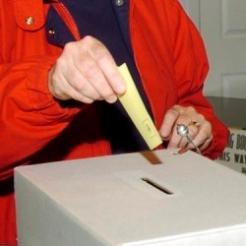Polling errors at the general election show that human judgement is still critical in using digital technology, says John Tate.
So there we have it. The end of the UK election process and the opinion polls got it seriously wrong. Predictions of a hung parliament, with Ed Miliband securing the role of Prime Minister, proved way off the mark as a majority Conservative government swept to power.
Technology was there by the bucketload to help the research industry: mobile devices allow for easy and rapid data collection; the internet enables information to be moved around the UK at lightning speed (20,000 people can be spoken to within an hour and their views published online within seconds), and gigabytes of data storage can be accessed instantly and at a fraction of the cost of 20 years ago.
Spending billions
The IT industry is spending billions spreading the message that all this technology can give us a deep insight into human behaviour and predict much of what is going to happen.
Vendors are encouraging us to invest our organisation’s funds in these new developments, but when forecasting the election results it simply didn’t deliver. So what went wrong and what lessons can we learn?
From what I can gather, the core technology worked. So it looks like the problem must have been something to do with the people who used it. Perhaps the research companies misread what the data was telling them, or selected the samples badly? Or maybe they incorrectly assumed that people actually mean what they say when speaking to pollsters?
While this experience was not positive there are some good case studies of success stories in this area.
For example, in the 19th century developments in statistical techniques had a profound and positive impact on how we analyse data. It was shown that relatively small sample sizes could predict results for large sets of data. Confidence levels could then be given to understand the potential margin of error.
The ability to use samples made a huge contribution to the development of the charity sector as this helped people understand and demonstrate what was really going on in deprived areas of the country. All this happened without a computer in sight, which shows that great things can be achieved with new ideas – but they need people to make them work.
Of course, 21st century digital technology has moved us forward in many areas. But the election case study flags real issues about how people are using it.
So it was good timing to see Eduserv’s research report entitled Creating the right environment for digital transformation, which came out in late April, looking at technology use in the charity sector.
Firstly it showed that the majority (70 per cent) of charity leaders and IT teams are failing to work together to identify future priorities and plan ahead. In addition, only half of charities have an IT function which is seen to work effectively with the rest of the organisation.
A further 41 per cent of respondents did not think their trustees understood the importance of IT.
People issues
There are certainly a lot of people issues there. My own experience of digital adoption in charities supports these findings.
If you share at least some of this view I would encourage you to revisit three things:
- Firstly, how your leadership team engages with IT and supports the development of digital technology in your organisation;
- Secondly, look at your trustee board and see if you can develop their understanding of technology – perhaps via recruitment of a digital specialist or some high-level training; and
- Finally, make sure your IT function is fit-for-purpose and receives the same attention and support as the rest of the organisation.
However, I am sure that those parts of the IT industry which are trying to sell IT products and services would put a different view.
I have to say right now, in light of the election opinion poll fiasco, they could certainly put an argument forward that these research results cannot be taken too seriously.
John Tate is a business consultant, a visiting lecturer at Cass Business School and a trustee at Eduserv.









